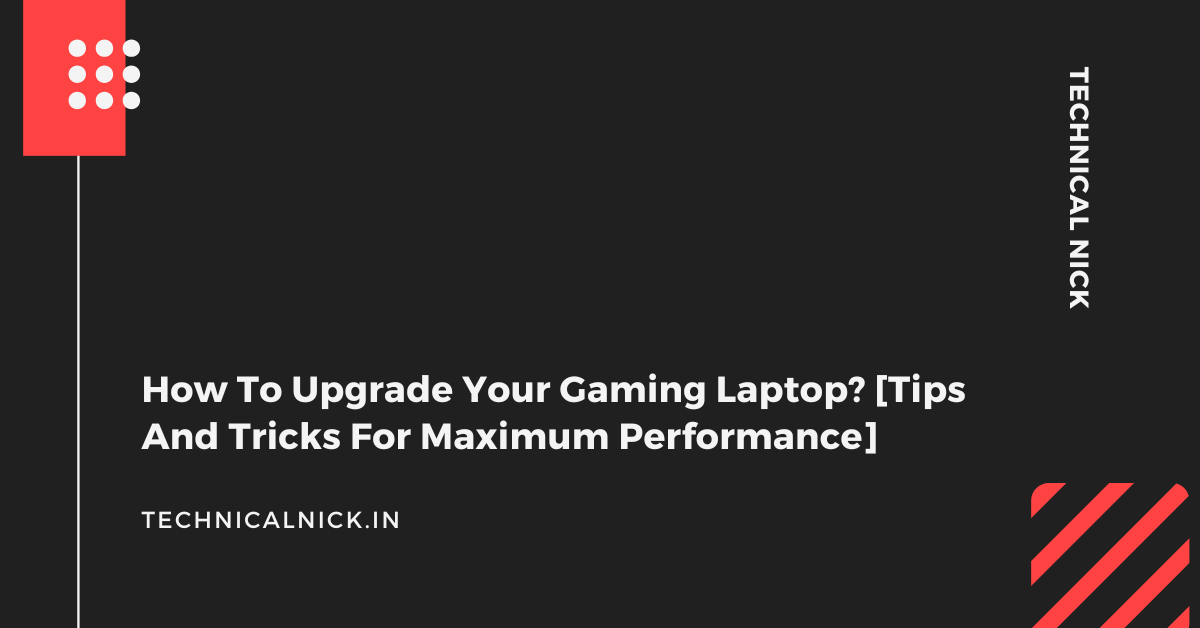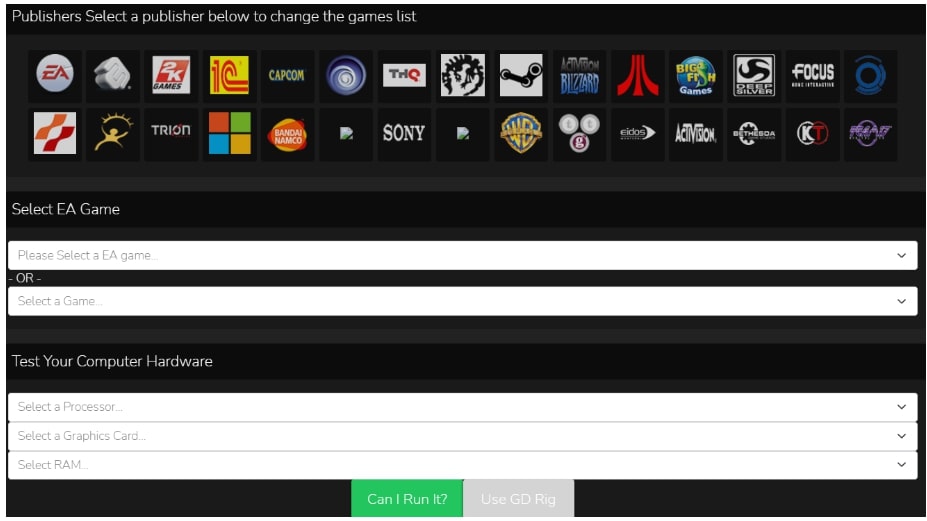Can Your PC Run These 2024 Blockbuster Games?

Executive Summary

2024 is shaping up to be a monumental year for PC gaming, with a slew of highly anticipated titles promising breathtaking graphics and demanding system requirements. This article dives deep into the specifications needed to run some of the most hyped games of the year, helping you determine if your current rig is up to the challenge or if an upgrade is in order. We’ll explore key hardware components, provide crucial tips for optimization, and guide you through assessing your system’s capabilities. Don’t let a low-spec PC hold you back from experiencing the best 2024 has to offer – let’s get started!

Introduction
The excitement is palpable! 2024 is poised to deliver a wave of stunning PC games, pushing the boundaries of visual fidelity and gameplay. But before you pre-order that next big title, it’s crucial to ensure your PC can handle it. A frustrating experience of low frame rates and lag can quickly dampen the thrill of a new release. This comprehensive guide will equip you with the knowledge to confidently assess your system’s capabilities and make informed decisions about upgrades or settings adjustments. Let’s make sure you’re ready to conquer the gaming landscape of 2024.
Frequently Asked Questions (FAQs)
- Q: My PC is a few years old. Can I still run the new games?
A: Possibly! Many games offer adjustable settings, allowing you to prioritize performance over graphical fidelity. However, older hardware may struggle with the latest titles at maximum settings. We’ll explore ways to optimize your experience later in the article.
- Q: What’s the most important component for gaming?
A: While a balanced system is ideal, the GPU (Graphics Processing Unit) is generally the most crucial component for gaming performance. It’s responsible for rendering the visuals, and a powerful GPU is essential for smooth frame rates.
- Q: How can I improve my PC’s gaming performance?
A: Besides upgrading hardware, optimizing in-game settings, updating drivers, and closing unnecessary background applications can significantly improve performance. We’ll discuss these techniques further.
Graphics Card (GPU) Requirements
The GPU is the heart of your gaming PC, responsible for translating the game’s data into the visuals you see on your screen. 2024 games are demanding, requiring powerful GPUs for optimal performance.
- Consider the latest generation: Aim for a Nvidia GeForce RTX 40-series or AMD Radeon RX 7000-series card for the best experience with the most demanding titles.
- VRAM is key: High-resolution textures and complex visuals require ample VRAM (Video RAM). Look for cards with at least 8GB of VRAM, with 12GB or more being increasingly desirable for future-proofing.
- Ray tracing capabilities: Many 2024 games feature ray tracing, a technique that simulates realistic lighting and reflections. A dedicated ray tracing core in your GPU will greatly enhance this experience.
- Benchmarking: Before you buy, check reputable websites like UserBenchmark or 3DMark to see how the GPU you are considering performs on games similar to the ones you want to play.
- Cooling: Ensure your case has adequate airflow to keep your GPU cool under heavy load. Overheating can lead to performance throttling and potential damage.
CPU (Processor) Requirements
The CPU, or central processing unit, is the brain of your system, handling game logic, physics calculations, and other processing tasks. While not as critical as the GPU, a capable CPU is crucial for avoiding bottlenecks.
- Sufficient core count and clock speed: Opt for a multi-core processor with a high clock speed. Modern games utilize multiple cores, and a faster clock speed ensures smoother gameplay.
- Generational considerations: Aim for a relatively modern processor; something released within the last 2-3 years is generally recommended.
- Compatibility with your motherboard: Ensure the CPU you choose is compatible with your motherboard’s socket type.
- Check for bottlenecks: If your CPU is significantly weaker than your GPU, it can limit performance. A balanced system is essential.
- Overclocking (Advanced Users): Carefully consider overclocking your CPU to boost its performance. This requires understanding your cooling system’s capabilities and potential risks.
RAM (Memory) Requirements
RAM, or random access memory, acts as short-term storage for your system, holding the data the CPU and GPU need to access quickly. Adequate RAM ensures smooth operation and prevents stuttering.
- 16GB minimum: For 2024 games, 16GB of RAM is the bare minimum.
- 32GB for future-proofing: Consider 32GB for smoother performance and better multitasking, especially if you run other applications alongside your games.
- RAM speed: Faster RAM (measured in MHz) can slightly improve performance. Look for speeds of 3200MHz or higher.
- Dual-channel configuration: To maximize RAM performance, install your RAM sticks in a dual-channel configuration (two sticks of equal capacity and speed).
- Compatibility with your motherboard: Check your motherboard’s specifications to ensure compatibility with the RAM you choose.
Storage (SSD vs. HDD) Requirements
The speed of your storage device directly impacts game loading times. SSDs are significantly faster than HDDs, making them essential for a smooth gaming experience.
- SSD is crucial: Prioritize an SSD (Solid State Drive) for your game installations. The faster loading times will dramatically improve your gaming sessions.
- Consider NVMe drives: NVMe SSDs offer the fastest speeds, making them ideal for demanding games.
- Sufficient storage space: Modern games can take up considerable storage space (sometimes over 100GB), so ensure you have enough free space on your drive.
- Game installation location: Install your games on your SSD for optimal performance.
- HDD for secondary storage (optional): You can use an HDD (Hard Disk Drive) for storing less frequently accessed files, such as movies or archived game files.
Game Optimization and Settings
Even with top-of-the-line hardware, optimizing your game settings and system can significantly impact performance.
- Lowering graphics settings: Adjusting settings like shadows, anti-aliasing, and texture quality can drastically improve frame rates without a huge impact on visual fidelity.
- Closing background applications: Close unnecessary applications running in the background to free up system resources.
- Updating drivers: Ensure your graphics card drivers and other system drivers are up to date.
- In-game settings: Experiment with different graphical settings to find the optimal balance between visual quality and performance. Often, the “Medium” settings are a good compromise.
- Overclocking (Advanced Users): Carefully consider overclocking your CPU and/or GPU to boost performance. Always monitor temperatures and stability.
Conclusion
Navigating the world of PC gaming hardware and ensuring your system can handle 2024’s blockbuster titles requires careful consideration of several key components. While a powerful GPU is often the most significant factor, a balanced system with ample RAM, a capable CPU, and a fast SSD is essential for a smooth and enjoyable gaming experience. Remember to leverage game optimization techniques to further enhance performance. Don’t let hardware limitations hold you back – invest wisely and prepare for a year of unforgettable gaming adventures!
Keywords:
PC Gaming, 2024 Games, GPU Requirements, CPU Requirements, RAM Requirements, SSD, Game Optimization





